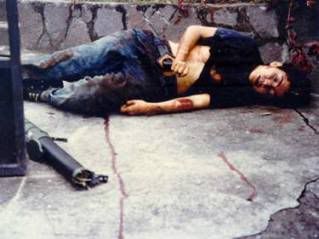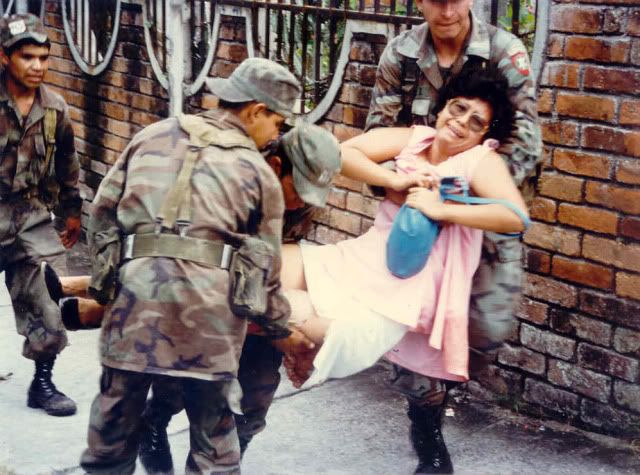Skip to comments.
43 Books About War Every Man Should Read
Art of Manliness ^
| 12-2-13
| Ryan Holiday.
Posted on 01/10/2014 5:48:26 PM PST by dynachrome
War is unquestionably mankind at his worst. Yet, paradoxically, it is in war that men — individual men — often show the very best of themselves. War is often the result of greed, stupidity, or depravity. But in it, men are often brave, loyal, and selfless.
I am not a soldier. I have no plans to become one. But I’ve studied war for a long time. I am not alone in this.
The greats have been writing and reading about war — its causes, its effects, its heroes, its victims — since the beginning of written text. Some of our most powerful literature is either overtly about war or profoundly influenced by it. Homer’s epic poems are about war — first, ten years of battle against Troy and then ten years of battle against nature and the gods. Thucydides, our first great historian, wrote about the Peloponnesian War — the great war between Sparta and Athens. Rome was built by war and literature, and the world has been influenced by that ever since. The American Empire is no different — our men came home and wrote about the Civil War, about the Spanish-American War, about WWI, about WWII. A new generation has come home and has written (and is still writing) powerful books about the counterinsurgency in Iraq and Afghanistan.
The study of war is the study of life, because war is life in the rawest sense. It is death, fear, power, love, adrenaline, sacrifice, glory, and the will to survive.
(Excerpt) Read more at artofmanliness.com ...
TOPICS: Books/Literature; Chit/Chat; Reference
KEYWORDS: bookclub; bookreview; books; literature; war
Navigation: use the links below to view more comments.
first previous 1-20, 21-40, 41-60, 61-80 ... 141-142 next last
To: yarddog
huh. You’d think one or two would write something.
41
posted on
01/10/2014 6:44:51 PM PST
by
dynachrome
(Vertrou in God en die Mauser)
To: dynachrome
I read this
book in high school. You should have the look on the face of the librarian at the Durham Public Library when I checked this out.
42
posted on
01/10/2014 6:45:43 PM PST
by
Perdogg
(Ted Cruz-Rand Paul 2016)
To: csmusaret
You make me laugh. Victor Davis Hanson can only be controversial if you do not like facts or truth (or a liberal . . . oh, I repeat myself!).
Oldplayer
To: dynachrome
Some that should be added to the list:
The Harper Encyclopedia of Military History: From 3500 BC to the Present, by R. Ernest Dupuy, Ernest R. Dupuy, Trevor N. Dupuy. The essential guide to battles and wars, great and small. The index is divided into three parts: “General Index,” “Index to Wars,” and “Index of Battles and Sieges.” It is an important feature of the encyclopedia since it is the best way to pinpoint information in the chronological arrangement.
The Influence of Sea Power Upon History: 1660-1783, by Alfred Thayer Mahan. It details the role of sea power during the seventeenth and eighteenth centuries, and discusses the various factors needed to support and achieve sea power, with emphasis on having the largest and most powerful fleet. Scholars consider it the single most influential book in naval strategy. Its policies were quickly adopted by most major navies, ultimately causing the World War I naval arms race.
War On The Eastern Front 1941-1945 : The German Soldier in Russia, by James Lucas. Some of the most extraordinary and surreal battles between intelligent, determined Germans and rigidly hierarchical Russians, who while vastly outnumbering their enemy, abhorred initiative and common sense, resulting in terrible destruction of men and equipment.
Devil’s Guard, Recall to Inferno (Devil’s Guard II), Devil’s Guard III: Unconditional Warfare, all by George R. Elford. The story of a Waffen-SS battalion at the end of WWII that was converted to French Foreign Legion and sent to fight in French Indochina. One of the top 10 books read by US soldiers fighting in the Gulf War.
The Liberators, by Viktor Suvorov (Vladimir Bogdanovich Rezun). The Liberators is a collection of Viktor Suvorov’s shockingly revealing, and often hilarious, first-hand stories about the inside of the Soviet-army during the 1960’s, culminating in the 1968 invasion of Czechoslovakia. The author brilliantly contrasts the outside world’s perception of the Soviet Union with the pathetic reality: an internally weak nation run by a system of corruption, brutality and incompetence. (Several of his books are top notch, both informative and entertaining.)
While many people have read All Quiet on the Western Front, by Erich Maria Remarque, few have read its sequel, entitled The Road Back, about the hardships suffered by veterans, many of who were horribly crippled, after World War I.
44
posted on
01/10/2014 6:48:44 PM PST
by
yefragetuwrabrumuy
(There Is Still A Very Hot War On Terror, Just Not On The MSM. Rantburg.com)
To: Errant
Great book. I have read it twice.
45
posted on
01/10/2014 6:50:18 PM PST
by
CrazyIvan
(Obama phones= Bread and circuits.)
To: dynachrome
46
posted on
01/10/2014 6:50:31 PM PST
by
Scrambler Bob
( Concerning bo -- that refers to the president. If I capitalize it, I mean the dog.)
To: dynachrome
As indicated by the narrative here itself, anyone before the Civil War in America is pretty ignored.
Great 2-volume on the RevWar is by Christopher Ward, simply “War of the Revolution” or originally “Rag, Tag and Bobtail”. It’s not long, could’ve been 1 large book. Very good.
My parents said “Washington’s Crossing” by Fischer was excellent, bearing much actual data about the whole war and not really just the Trenton battles. Husband also liked it alot. Still haven’t read it. Internet has messed me for real reading.
As for so-called 1812, “Dawn’s Early Light” was really good, by same author of the famous “Night to Remember”, Walter Lord. He was writing in this case about his own hometown. Being raised on history particularly battlefields, and raised by native history teacher, I was astounded to learn about the gigantic breast works put in by natives through the city. Much, much more to the Battle of Baltimore than the Star-Spangled Banner. In fact, you probably didn’t know there was a Battle for Baltimore, much less the more specific Battle of North Point. It really wasn’t just Navy and fortress, people. I read another very good book, called I think “Battle for Baltimore” IIRC. Very good, recent. Met the author at the time and have signed copy.
47
posted on
01/10/2014 6:51:45 PM PST
by
the OlLine Rebel
(Common sense is an uncommon virtue./Technological progress cannot be legislated.)
To: Errant
A great book! Bought two, gave one away and have yet to finish mine. The recipient said it was great and even lent it to another!
48
posted on
01/10/2014 6:52:39 PM PST
by
Fungi
To: yarddog

The Left controls so much of publishing that even military history is greatly distorted. I wrote much on events in El Salvador's guerrilla war as it happened. Today it is sickening to see the treatment that war gets in "history" books, in Wikipedia, and in texts. It is mostly comic-book-level Leftist propaganda.
49
posted on
01/10/2014 6:54:21 PM PST
by
Monterrosa-24
(...even more American than a French bikini and a Russian AK-47)
To: dynachrome
It starts out as a good list until a half a dozen positions down its interests become parochial and war obsessed. Thanks, but no thanks.
50
posted on
01/10/2014 6:55:14 PM PST
by
Revolting cat!
(Bad things are wrong! Ice cream is delicious!)
To: Monterrosa-24
I know what you mean.
The U.S. and the whole world for that matter has been the subject of extreme media manipulation or pure propaganda. This has been going on for at least 60 years.
Electing a character like Obama shows just how effective it has been.
51
posted on
01/10/2014 6:57:27 PM PST
by
yarddog
(Romans 8: verses 38 and 39. "For I am persuaded".)
To: yarddog
52
posted on
01/10/2014 6:57:29 PM PST
by
Errant
(Surround yourself with intelligent and industrious people who help and support each other.)
To: dynachrome
I would like to add “Last Stand of the Tin Can Sailors”.
53
posted on
01/10/2014 7:00:04 PM PST
by
CrazyIvan
(Obama phones= Bread and circuits.)
To: Errant
I have a book, I think it is titled “Lee’s Generals”. It was written not long after the war and is very readable. It also gives a different view than one usually gets.
54
posted on
01/10/2014 7:00:38 PM PST
by
yarddog
(Romans 8: verses 38 and 39. "For I am persuaded".)
To: dynachrome
I read it, and it’s trash. Caputo tries to paint himself as the good guy in the story and somehow I don’t think that’s the case.
55
posted on
01/10/2014 7:01:04 PM PST
by
OKSooner
("Like, cosmic, man.")
To: yarddog
There are a lot of great Civil War books available. You just have to look for them off the beaten path. Richard Taylor will immerse you in a different time and way of thinking.
There are a number of biographies of him that you will find intriguing. Just do a search on him. He was the son of Zachary Taylor, himself the equal of legends like Boone and Crocket...
56
posted on
01/10/2014 7:04:02 PM PST
by
Errant
(Surround yourself with intelligent and industrious people who help and support each other.)
To: dynachrome
“Andersonville” MacKinlay Kantor
.
57
posted on
01/10/2014 7:04:53 PM PST
by
Mears
To: OKSooner

"...I read it, and it’s trash..." I'm glad to see you feel the same about Caputo as I do.
58
posted on
01/10/2014 7:08:05 PM PST
by
Monterrosa-24
(...even more American than a French bikini and a Russian AK-47)
To: dynachrome
"To Save Bastogne", Robert G. Phillips
Yes, there were other units of the US army involved in fighting the Germans besides those who were sent to Bastogne, like those who were already in place on the western wall.
Not much history written about those early days of The Bulge and the delaying action, for some reason...
59
posted on
01/10/2014 7:17:02 PM PST
by
OKSooner
("Like, cosmic, man.")
To: OKSooner
I think the German advance in the “Bulge” was halted partly by lack of fuel and also bridges being blown.
I know the German commander was quoted as saying something like, “they would have succeeded if not for those damned engineers.”
60
posted on
01/10/2014 7:21:12 PM PST
by
yarddog
(Romans 8: verses 38 and 39. "For I am persuaded".)
Navigation: use the links below to view more comments.
first previous 1-20, 21-40, 41-60, 61-80 ... 141-142 next last
Disclaimer:
Opinions posted on Free Republic are those of the individual
posters and do not necessarily represent the opinion of Free Republic or its
management. All materials posted herein are protected by copyright law and the
exemption for fair use of copyrighted works.
FreeRepublic.com is powered by software copyright 2000-2008 John Robinson
 The Left controls so much of publishing that even military history is greatly distorted. I wrote much on events in El Salvador's guerrilla war as it happened. Today it is sickening to see the treatment that war gets in "history" books, in Wikipedia, and in texts. It is mostly comic-book-level Leftist propaganda.
The Left controls so much of publishing that even military history is greatly distorted. I wrote much on events in El Salvador's guerrilla war as it happened. Today it is sickening to see the treatment that war gets in "history" books, in Wikipedia, and in texts. It is mostly comic-book-level Leftist propaganda.

